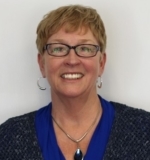Player FM 앱으로 오프라인으로 전환하세요!
Lessons from New Hope for reducing poverty today: An interview with Kali Grant, Georgetown University, and Julie Kirksick, former New Hope Executive Director – Episode #191
Manage episode 304644032 series 128719

 The New Hope Project was an anti-poverty program in the 1990s in Milwaukee that offered a simple but powerful pledge: If participants were willing to work full-time, they would not be poor. The program used a wage subsidy, support for child care and health insurance, and (if participants needed it) short-term subsidized employment to achieve that pledge.
The New Hope Project was an anti-poverty program in the 1990s in Milwaukee that offered a simple but powerful pledge: If participants were willing to work full-time, they would not be poor. The program used a wage subsidy, support for child care and health insurance, and (if participants needed it) short-term subsidized employment to achieve that pledge.
While the program ended more than 20 years ago, its lessons, including from a five-year randomized evaluation by MDRC and from longer-term research on impacts for children and youth, are especially important today as the nation struggles to tackle racial and economic inequalities exacerbated by the pandemic.
A new brief published by Georgetown’s Center on Poverty & Inequality reexamines the lessons from New Hope and we’re joined by two of its authors. Julie Kirksick (@kerksick) served as New Hope’s Executive Director from 1997 to 2008 and as Associate Director prior to that. Since New Hope, she has held senior roles in human services agencies in both Wisconsin and Colorado. And Kali Grant (@kaligrant) is a Senior Policy Analyst at the Georgetown Center on Poverty and Inequality.
The post Lessons from New Hope for reducing poverty today: An interview with Kali Grant, Georgetown University, and Julie Kirksick, former New Hope Executive Director – Episode #191 appeared first on Gov Innovator Podcast.
101 에피소드
Manage episode 304644032 series 128719

 The New Hope Project was an anti-poverty program in the 1990s in Milwaukee that offered a simple but powerful pledge: If participants were willing to work full-time, they would not be poor. The program used a wage subsidy, support for child care and health insurance, and (if participants needed it) short-term subsidized employment to achieve that pledge.
The New Hope Project was an anti-poverty program in the 1990s in Milwaukee that offered a simple but powerful pledge: If participants were willing to work full-time, they would not be poor. The program used a wage subsidy, support for child care and health insurance, and (if participants needed it) short-term subsidized employment to achieve that pledge.
While the program ended more than 20 years ago, its lessons, including from a five-year randomized evaluation by MDRC and from longer-term research on impacts for children and youth, are especially important today as the nation struggles to tackle racial and economic inequalities exacerbated by the pandemic.
A new brief published by Georgetown’s Center on Poverty & Inequality reexamines the lessons from New Hope and we’re joined by two of its authors. Julie Kirksick (@kerksick) served as New Hope’s Executive Director from 1997 to 2008 and as Associate Director prior to that. Since New Hope, she has held senior roles in human services agencies in both Wisconsin and Colorado. And Kali Grant (@kaligrant) is a Senior Policy Analyst at the Georgetown Center on Poverty and Inequality.
The post Lessons from New Hope for reducing poverty today: An interview with Kali Grant, Georgetown University, and Julie Kirksick, former New Hope Executive Director – Episode #191 appeared first on Gov Innovator Podcast.
101 에피소드
Tất cả các tập
×플레이어 FM에 오신것을 환영합니다!
플레이어 FM은 웹에서 고품질 팟캐스트를 검색하여 지금 바로 즐길 수 있도록 합니다. 최고의 팟캐스트 앱이며 Android, iPhone 및 웹에서도 작동합니다. 장치 간 구독 동기화를 위해 가입하세요.




